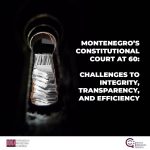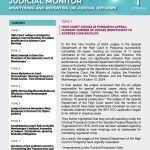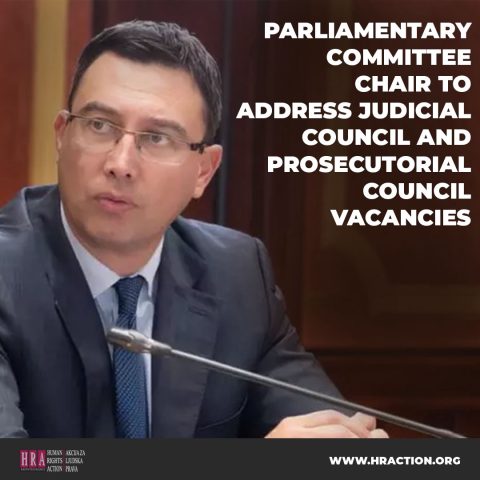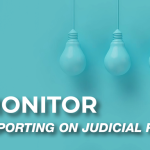
MONTENEGRO’S CONSTITUTIONAL COURT AT 60: CHALLENGES TO INTEGRITY, TRANSPARENCY, AND EFFICIENCY
05/11/2024
Number 1: Judicial Monitor – Monitoring and Reporting on Judicial Reforms
16/11/2024PARLIAMENTARY COMMITTEE CHAIR TO ADDRESS JUDICIAL COUNCIL AND PROSECUTORIAL COUNCIL VACANCIES

Human Rights Action (HRA) today appealed to Vladislav Bojović, the President of the Parliamentary Committee on Political System, Judiciary and Administration, to convene a session focused on addressing the ongoing selection process for the vacant member of the Judicial Council and to announce a call for the selection of two missing members of the Prosecutorial Council.
The Judicial Council has been without one member for four months, following the passing of lawyer Fikret Kurgaš on June 30. The Council informed the Parliament of this vacancy on July 5. Additionally, the Prosecutorial Council has two vacant positions due to the resignations of lawyers Siniša Gazivoda and Miloš Vuksanović, who stepped down in mid-August and early September, respectively. The Prosecutorial Council notified the Parliament of these resignations on September 12.
On September 5, the competent parliamentary committee was scheduled to determine the list of registered candidates for the election of a member of the Judicial Council; however, the session was not held due to a lack of quorum. Since then, no further sessions have taken place. We expect the next session to address these outstanding issues regarding the election of missing members for both the Judicial and Prosecutorial Councils.
The Assembly of Montenegro must demonstrate democratic maturity and a sense of responsibility in filling vacant positions within state bodies that oversee the judiciary. This responsibility extends to the selection of judges for the Constitutional Court as well.
We remind stakeholders that prior unjustified delays in elections crucial for the judiciary and the functioning of the Constitutional Court have contributed to Montenegro’s stagnation in negotiations with the European Union.
Members of the ruling majority now bear a special responsibility to prove that the government in Montenegro respects the separation of powers and ensures the smooth operation of the judiciary. They are expected to abandon long-standing practices of political influence trading in councils that are meant to protect judicial independence and the autonomy of state prosecution.
HRA takes this opportunity to commend the Judicial Council for its efforts to allow public attendance at its upcoming session, as well as for its commitment to enhancing transparency moving forward.
As Montenegro strives for European Union membership, which is founded on the rule of law and the principled separation of powers, the Judicial Council’s unequivocal call to politicians to refrain from making inappropriate remarks about judges and court rulings—remarks that undermine the integrity of the judicial branch—is particularly encouraging.
While constructive criticism is essential, blanket criticism merely reflects the pursuit of political influence and contributes little else.





 English
English